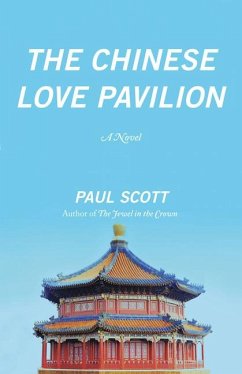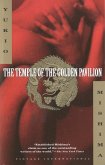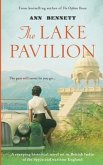In Bombay in the 1930s a young British clerk named Tom Brent is persuaded by a botanist named Saxby to stay on in India. Saxby is that rare Englishman who really understands Indian culture, but he's also elusive and deeply flawed. Years later, after Tom has become a soldier and been wounded in Burma, he is sent on a mission to Malaya to track down Saxby, now suspected of murder. The second half of the novel, set in 1945 (a time when Scott was in Malaya), is a strange brew of exotic romance, tensions between army officers, and the mystery of the jungle: its cultures, religions, and fauna. The love pavilion is where Tom meets his Eurasian lover and imagines he can escape the constraints of British colonial notions of manhood.







